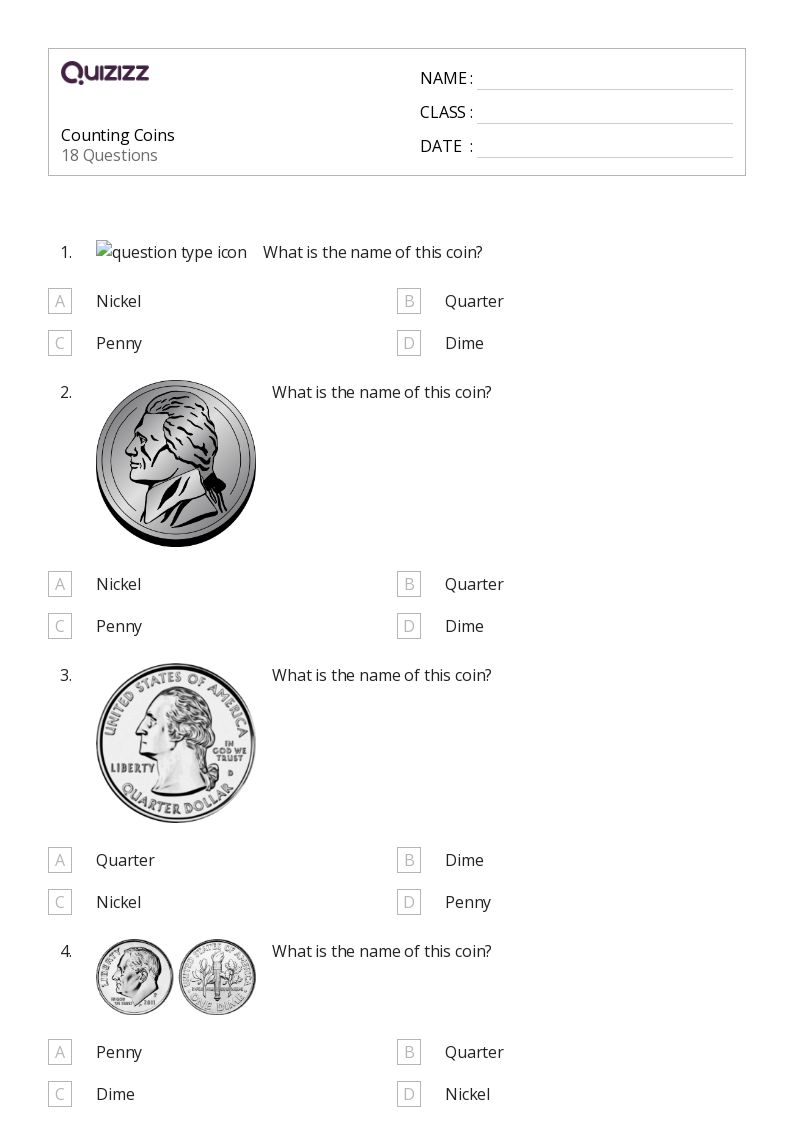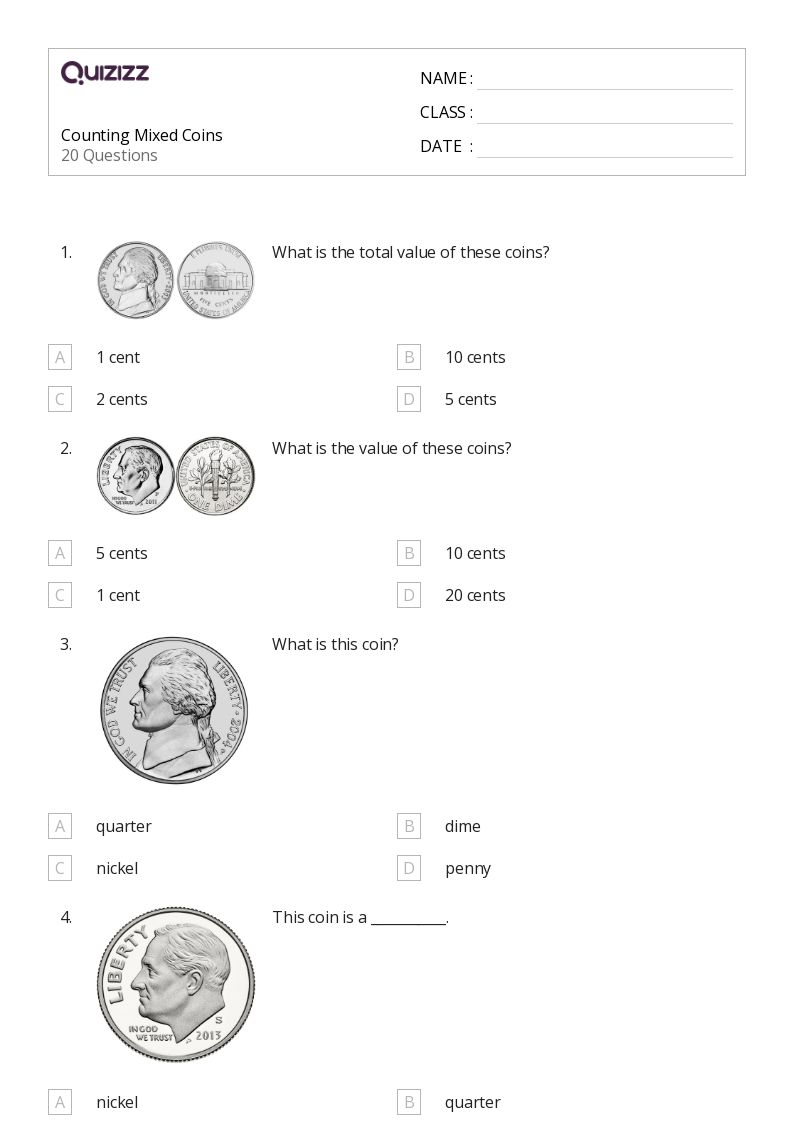
10 Q
1st - 2nd

18 Q
1st - 3rd

16 Q
1st

34 Q
1st - 3rd

15 Q
1st - 2nd

10 Q
1st

12 Q
1st - 2nd

21 Q
1st

10 Q
1st

15 Q
1st

8 Q
1st

8 Q
1st

18 Q
1st - 2nd

19 Q
1st

10 Q
1st

20 Q
1st - 2nd

10 Q
1st

9 Q
1st

13 Q
1st - 2nd

12 Q
1st

10 Q
1st - 3rd

10 Q
1st - 2nd

15 Q
1st - 3rd
Explore Adding Groups of Coins Worksheets by Grades
Explore Other Subject Worksheets for class 1
Explore printable Adding Groups of Coins worksheets for 1st Class
Adding Groups of Coins worksheets for Class 1 are an excellent resource for teachers who want to help their students develop a strong foundation in math, specifically in the area of money math. These worksheets focus on teaching young learners about the different types of coins and their values, as well as how to perform basic operations with money. By incorporating these worksheets into their lesson plans, teachers can ensure that their students are not only learning the necessary skills for understanding money math but also developing a love for the subject. With a variety of engaging activities and exercises, Adding Groups of Coins worksheets for Class 1 are a must-have for any teacher looking to enhance their students' learning experience in the world of math.
Quizizz is an online platform that offers a wide range of educational resources, including worksheets, quizzes, and interactive games, making it the perfect tool for teachers who want to supplement their Adding Groups of Coins worksheets for Class 1. With Quizizz, teachers can create customized quizzes and activities that align with their lesson plans and curriculum, ensuring that their students are receiving the most relevant and engaging content. In addition to its vast library of resources, Quizizz also offers features such as real-time feedback and analytics, allowing teachers to track their students' progress and make data-driven decisions to improve their instruction. By incorporating Quizizz into their teaching strategies, educators can provide their Class 1 students with a fun and interactive way to learn about money math and operations with money, ultimately setting them up for success in their future mathematical endeavors.
